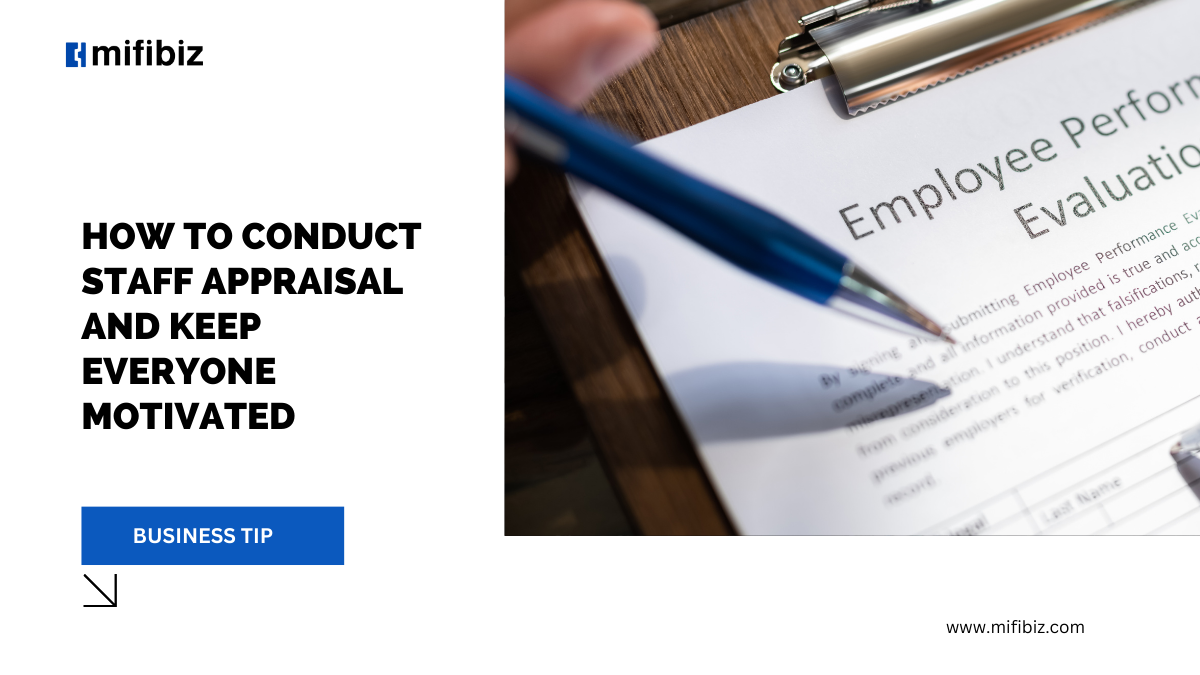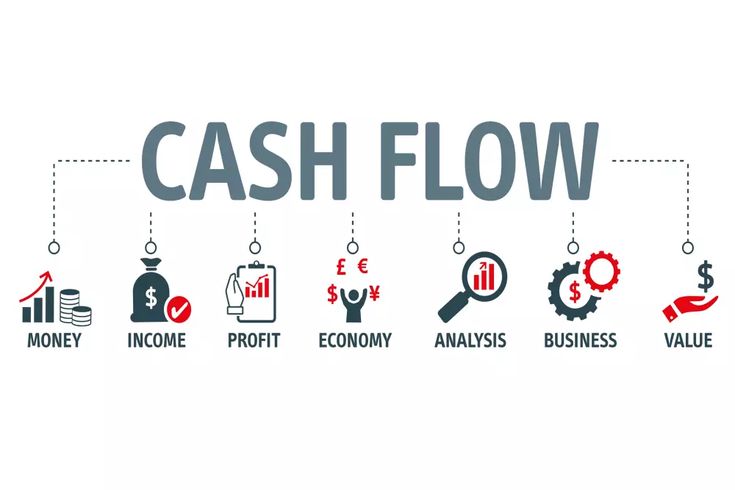Whether as a manager, CEO, team leader, or whatever leadership role you hold in your organization, staff appraisal is sometimes unavoidable for you not to get caught up neck deep in your work that you might lose contact with your team members though you are all in the same working environment.
What Staff Appraisal Means
Staff appraisal, in many organizations, is a part of measuring performance. Though it might seem tedious, this article provides insights into how your staff appraisal can be a positive experience for you, as a team leader or employer, and your staff or team members.
Read: 7 Effective Strategies I Used to Manage My Virtual Team Successfully
This is why Staff Appraisal Matters
Maybe your team members’ performances are dropping, or you have a new term agenda for your organization; there is always a constant need to do a staff appraisal. Yes, staff appraisal it is. As a manager or employee, you might have many other important things to tend to; perhaps, you do not see a need for a staff appraisal. You might even have a large team, and the staff appraisal process seems too hectic for you. Conducting a staff appraisal can be more important than you underrate it.
How to Conduct a Great Staff Appraisal
The first thing you need to know about conducting an appraisal is that your staff has to be involved in the process. You cannot just wake up one morning and call a round table discussion, saying that you want to conduct an appraisal of your staff. I am assuming that it will not go well.
In many organizations, each staff member is allowed to assess themselves and submit their take on their performances. This is an opportunity for them to self-determine what their performance and progress look like.
You have to give them time for this and let them understand how seriously you take the staff appraisal. They will get to evaluate what barriers they have faced and what opportunities might await them.
While each staff member is doing this, you, as their employer, must go through the same process from your end.
Get your Appraisal Homework right.
I know that going through the assessment process from your end can be very hectic as the process will be repeated for every single one of your employees, especially if you have a large team. To make this easier, you should try to reference each employee’s job description and how they have been performing based on it.
This cannot be done just during the period of the staff appraisal planning. In essence, it means you must always be aware of your staff members’ performances. You must keep close tabs on your employees as they go about their duties in your organization. This helps you know your assessment when it is time for the staff appraisal.
Another approach is to learn more about each employee from their colleague. This has to be done in confidence, as in discreetly. You have to ensure that the assessment contains only relevant information, not things that do not contribute to the whole staff appraisal process.
The Appraisal Setting Matters
When setting up a staff appraisal plan, ensure that there is enough time to focus maximally on the appraisal. Setting up other agendas for the staff appraisal might not give room to full focus on the appraisal as it should be.
You will always have time to discuss other matters, but your staff appraisal occasionally happens since it is a once-in-a-while thing; why not fully focus on your staff appraisal when you have one?
Ensure Specificity in Your Appraisal
It does not sound authentic if your appraisal lacks the scenarios you can point out to. Avoid the use of vague remarks. Give examples of times when what you observed happened. This way, you can truly let your employees see that you know about what they do. Trust me, and it gives them a sense of assurance that you care about them and what they do.
Listen
During an appraisal, ensure that you listen more than you speak. This is more reason why you have to be specific. Allow each employee to state their mind honestly; this can only be done if they see that you are ready to listen. When you give your appraisal on a particular employee, ensure that the person gives a response either in defense or a contribution to the idea.
Ask questions and be ready to receive honest responses. After all, you are all working towards the same goal, which is in the organization’s interest.
Making it About Blame is not ideal.
The first thing to note here is that nothing about your appraisal should be surprising or come as a bombshell when doing your staff appraisal. From time to time, ensure to let your staff know how they are doing, especially if they are getting anything wrong. You should not wait until the staff appraisal before you let any employee know what they are doing wrong.
You will have waited too long if the staff appraisal day is your ideal day for blaming any employee for any misconduct. This does not imply that staff appraisal is only to evaluate your employees based on their good performances. Still, a reminder that the appraisal should not be seen as an avenue to start sharing blames with each employee.
Nobody likes a bombshell, so it would be ideal to ensure that none is dropped during a staff appraisal. If at all you wish to drop a bombshell, let it be something good like “a sponsored trip to an international conference,” “an official car award,” or something within the means of your organization.
Anticipate the Unexpected
While you might have had a well-planned outline for how the staff appraisal will be, some things may go outside your plan. Maybe some of your employees might want to throw shades at you or even their fellow employees, or some start to react when they assume you favor one of them over the other. You should always be ready for the unexpected. After all, your ability to manage unexpected events is part of what makes you an excellent team leader.
The staff appraisal might not even have unexpected negative twists. The unexpected might be an action plan presented by one of your employees, which might make the discussion digress a bit. You have to be prepared for this. In short, anything can be.
Do not dwell much on the past.
While working on your staff appraisal, it is not ideal for making too many references to past occurrences regarding a particular employee, especially if the reference is negative. Maybe an employee did something wrong in the past, and the issue has been addressed; there is absolutely no point in bringing it up in a new staff appraisal. Except such issues have not been worked upon, do not bring up past issues.
Focus on a way forward and avoid dwelling too much on the past. Whether a successful or unpleasant past, dwelling on such does not do much good to your company.
Follow Up is essential.
One way to assure your employees that you value them is to always work on the discussions and resolutions made during the staff appraisal. Did anyone come up with an idea for the next phase of your company’s growth? If you had picked interest in it, why not follow it up with actions?
Do not just take notes. Work on the notes you have taken.
If you do not know what a staff appraisal is, I believe you do now. I strongly recommend that you begin to include plans for your staff appraisal when working on your company’s plans in general.
Like you get feedback from your clients, it is important to do the same within your company. Setting up a staff appraisal once in a while is just the perfect thing to do.
Top Reasons why Employees Hate Performance Appraisals
“One in four employees dreads their performance reviews more than anything in their entire working lives,” according to Douglas Stone and Sheila Heen, authors of “Thanks for the Feedback.” This is a sentiment shared by managers.
Most managers, supervisors, and HR practitioners are still struggling to deliver effective performance appraisals. In a survey targeting employees, only 55% of respondents believe that performance appraisals have a positive impact on their organization. Despite the negative feedback, in a separate survey only 30% of respondents said that their organizations made changes to their performance management system in the last three years.
Here are some common reasons why employees may consider performance appraisals ineffective:
- No input from employee – Employees don’t feel like their opinions and suggestions are being valued since their manager does most, if not all of the talking.
- Does not assess actual performance – Evaluations often end up focusing on an employee’s personal traits even if they do not necessarily have a negative impact on their work, instead of their actual contributions and productivity.
- Can be highly subjective – Results rely too heavily on the personal bias of their manager. Factors such as the manager’s mood and personal preference affect the results of what is supposed to be an objective evaluation.
- Managers are not prepared – Some companies have employees working on a different shift from their managers. As a result, employees feel that their managers have not observed them enough to provide an accurate assessment of their performance.
- Too infrequent – Since most companies conduct performance appraisals only once or twice a year with no catch-up sessions in between, employees are only informed of their performance status during the actual appraisal. This can lead to anxiety and defensiveness on the employee’s part.
To address these employee concerns it is vital to prepare a well executed performance appraisal process.
Discover more from
Subscribe to get the latest posts sent to your email.






